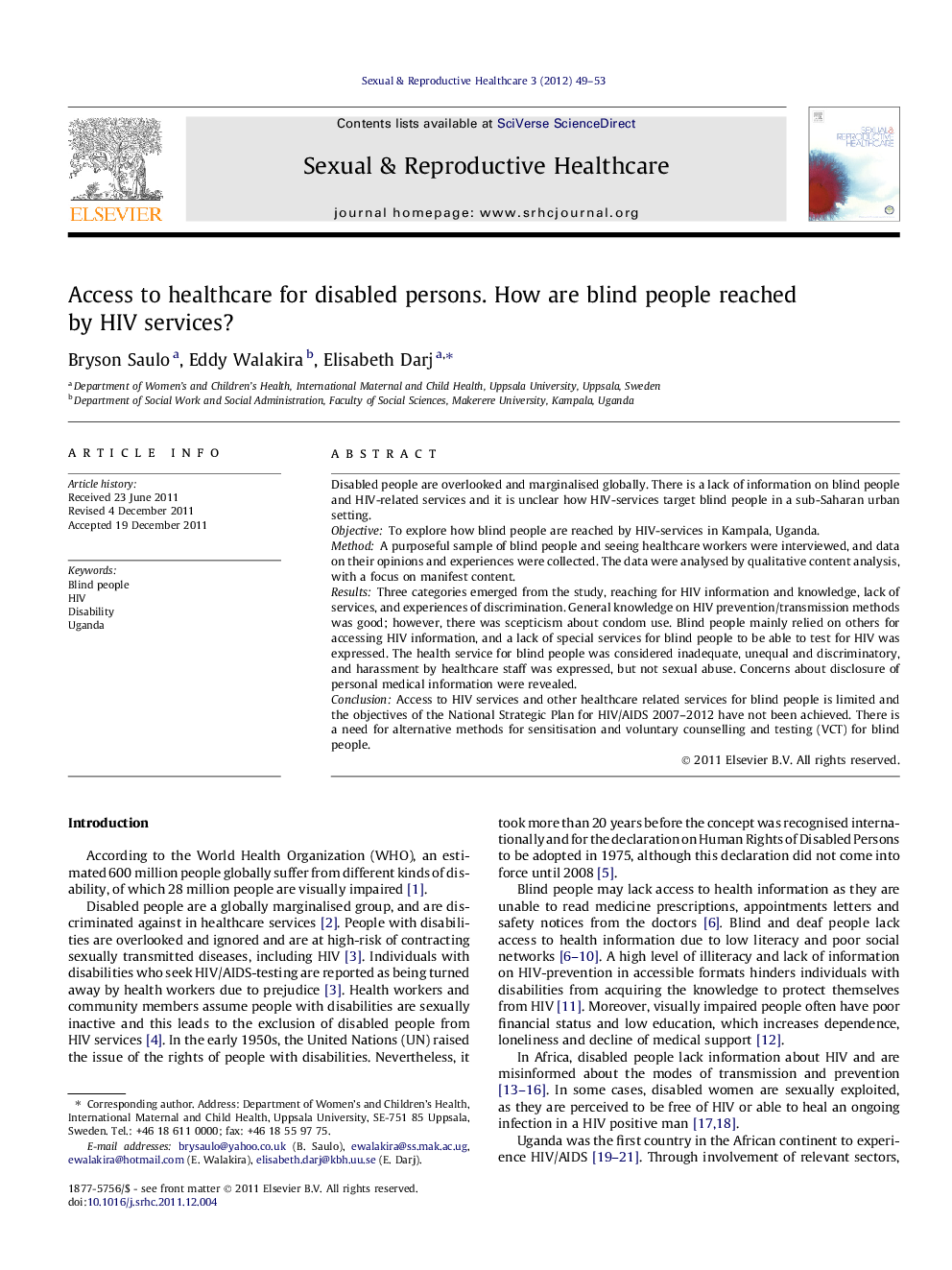| Article ID | Journal | Published Year | Pages | File Type |
|---|---|---|---|---|
| 2636129 | Sexual & Reproductive Healthcare | 2012 | 5 Pages |
Disabled people are overlooked and marginalised globally. There is a lack of information on blind people and HIV-related services and it is unclear how HIV-services target blind people in a sub-Saharan urban setting.ObjectiveTo explore how blind people are reached by HIV-services in Kampala, Uganda.MethodA purposeful sample of blind people and seeing healthcare workers were interviewed, and data on their opinions and experiences were collected. The data were analysed by qualitative content analysis, with a focus on manifest content.ResultsThree categories emerged from the study, reaching for HIV information and knowledge, lack of services, and experiences of discrimination. General knowledge on HIV prevention/transmission methods was good; however, there was scepticism about condom use. Blind people mainly relied on others for accessing HIV information, and a lack of special services for blind people to be able to test for HIV was expressed. The health service for blind people was considered inadequate, unequal and discriminatory, and harassment by healthcare staff was expressed, but not sexual abuse. Concerns about disclosure of personal medical information were revealed.ConclusionAccess to HIV services and other healthcare related services for blind people is limited and the objectives of the National Strategic Plan for HIV/AIDS 2007–2012 have not been achieved. There is a need for alternative methods for sensitisation and voluntary counselling and testing (VCT) for blind people.
